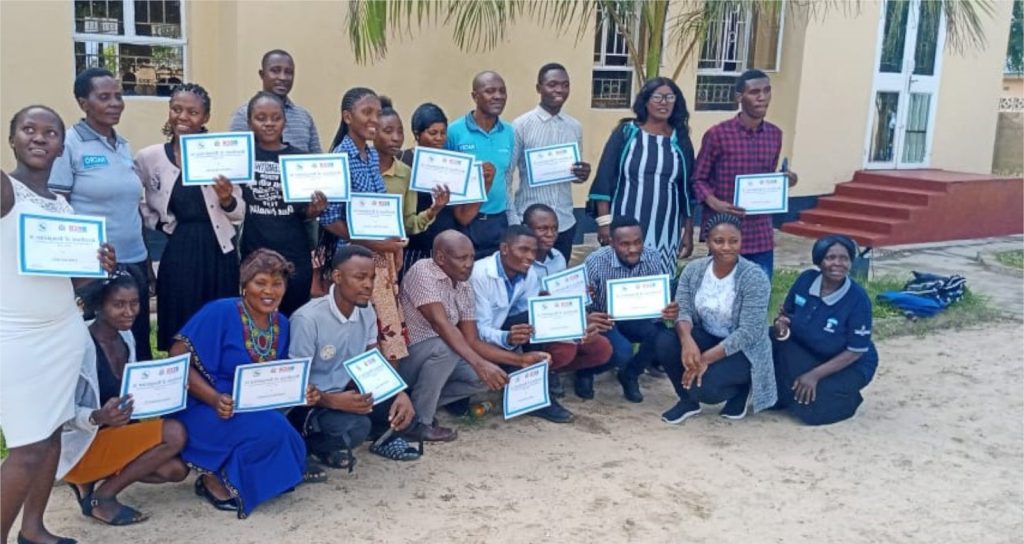NACRO has experience in collaborating with health authorities in public health
interventions.
Community-based epidemic control initiative
Recently in 2022 and 2023, NACRO implemented a community focused HIV, TB and Covid-19 control intervention in a partnership called Accelerating Towards Epidemic Control (ATEC II) with Global Fund support channelled through Churches Health Association of Zambia (CHAZ) to Expanded Church Response (ECR). The intervention involved training of community-based health volunteers (CBVs) for: TB, and Covid-19 case finding, contact tracing, testing, vaccinations, and health centre referrals.
Through the partnership NACRO trained 60 community-based health workers (CBVs) in
TB community adaptation services (30 in Kalabo, 30 in Kaoma); and 75 CBVs in Covid19 and HIV services (45 in Kalabo, 30 in Kaoma). The main outcomes of the intervention are:
– CBVs in Kalabo and Kaoma sensitized 1747 persons with TB messages and 1901 persons with Covid-19 messages, enabling community members to seek and access the health services.
– Health Ministry workers and CBVs were oriented in health services waste management.
– The intervention has availed the Health Ministry a cadre of capable health volunteers that link communities to heath facilities.
Through the community health volunteers (CBVs), the Health Ministry has been enabled to reach communities more efficiently. NACRO has thus contributed to the Health Ministry increasing the scale of interventions and thus optimizing health outreach.
Decentralised malaria control interventions
The community health volunteers trained by NACRO have been adopted by the Health Ministry in Kaoma and Kalabo and have been involved in providing other health facilitation services including participating in malaria control activities. For instance, the
community health volunteers have been participating in malaria control outreach activities, mainly:
– Sensitisation of communities on malaria control through environmental management to mitigate breeding of mosquitoes.
– Sensitisation of communities on malaria prevention and treatment
– Distribution of insecticide treated bed nets (ITNs)
– Conduct of malaria rapid tests
– Referrals of malaria patients to health centres

